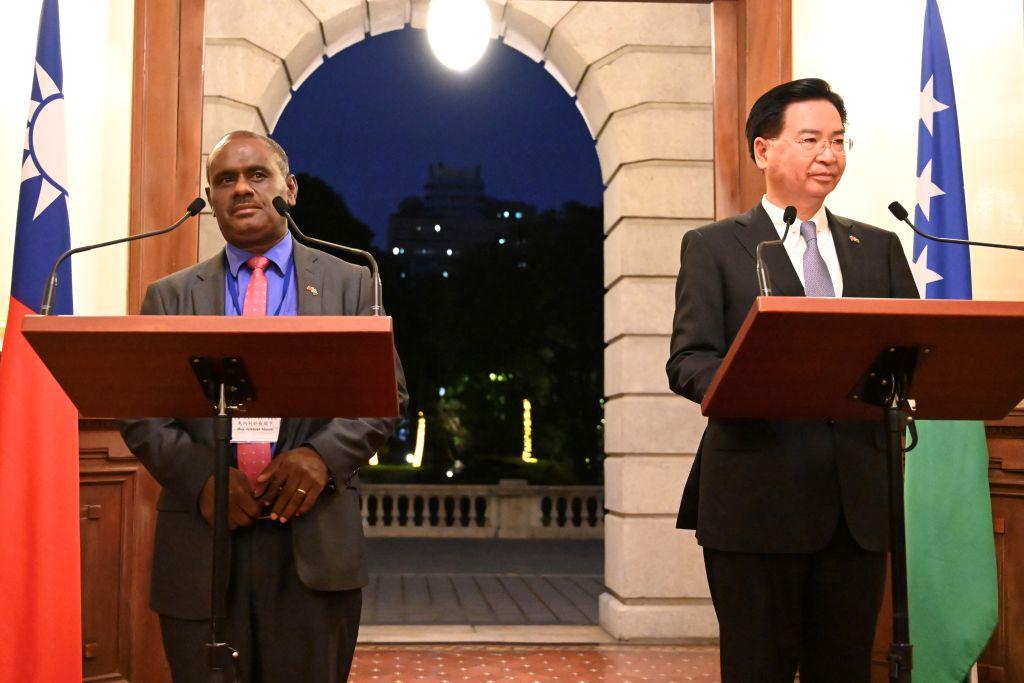TAIPEI, Taiwan—U.S. alliances in the Pacific could suffer a blow if the Solomon Islands were to switch diplomatic recognition from Taiwan to Beijing, U.S. experts and officials warned, after a Solomons government report recommended that it make the change.
The Solomon Islands, a South Pacific island nation located near Papua New Guinea and Australia, has been reviewing its diplomatic relationship with Taiwan since the current prime minister Manasseh Sogavare took office in April.



